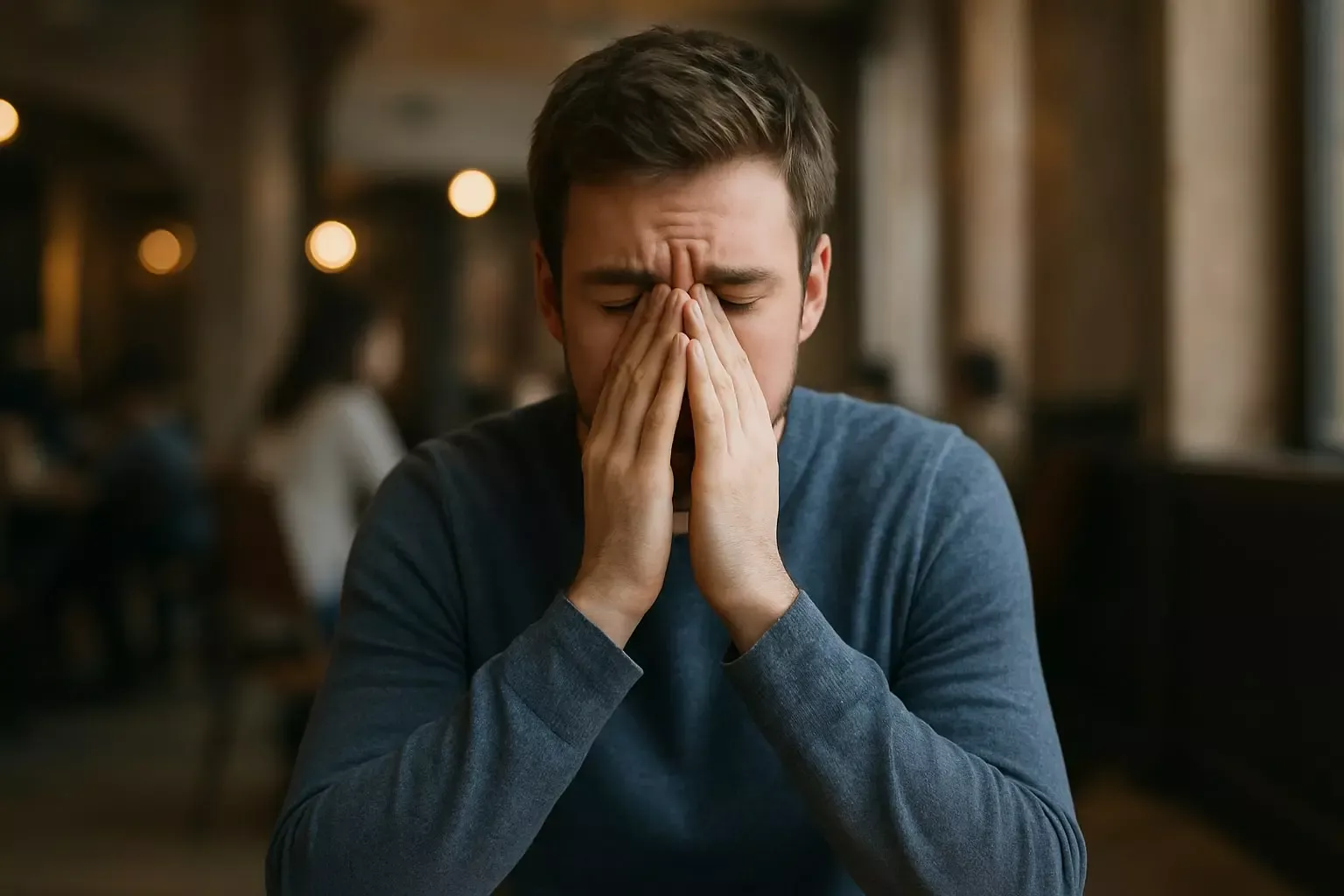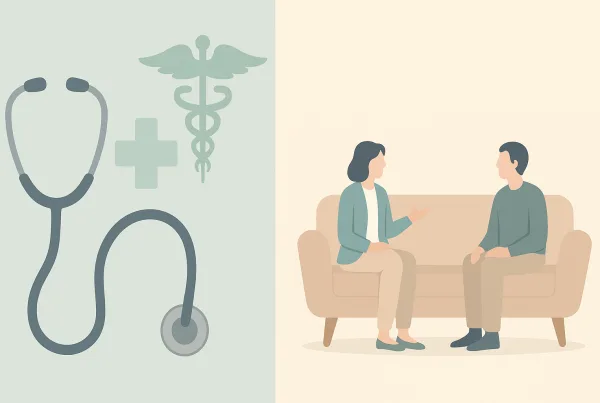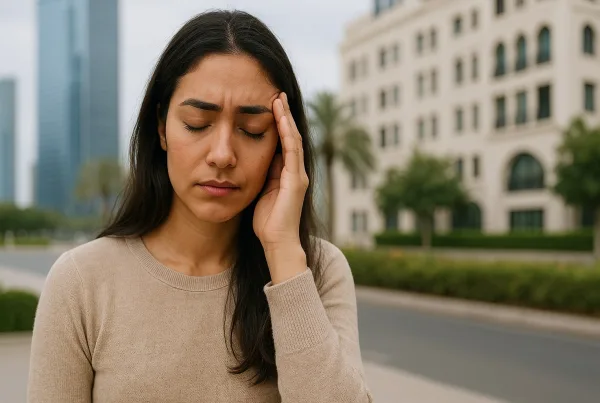What Is Social Phobia?
Social phobia, or social anxiety disorder, is a recognized psychiatric condition characterized by an intense fear of social situations where one might be judged, criticized, or humiliated. This fear goes beyond typical shyness—it interferes with daily functioning, self-confidence, and overall well-being.
At Beautiful Mind Medical Center, our expert psychiatrists and psychologists are dedicated to helping individuals manage and overcome social anxiety through compassionate, evidence-based, and personalized care.
Types of Social Phobia
Social anxiety disorder can present in different ways depending on the nature and scope of the fear:
- Generalized Social Anxiety: Affects a broad range of social situations such as meeting new people, dining in public, or entering crowded rooms.
- Specific Social Anxiety: Triggered by particular activities like public speaking, performing, or being the center of attention.
Common Symptoms
Social phobia affects both the mind and body. Symptoms may vary in intensity but generally include:
- Persistent fear of embarrassment or negative judgment
A strong belief that others are watching, judging, or criticizing your actions—even when there’s little evidence. - Avoidance of social or performance-related situations
Skipping events, conversations, or activities that could involve interaction or attention to avoid discomfort or humiliation. - Excessive self-consciousness in everyday interactions
Feeling overly aware of how you appear, speak, or behave in even minor social settings. - Physical symptoms:
Anxiety often triggers real bodily responses, including:- Blushing, sweating, trembling – Visible signs of nervousness that may intensify anxiety
- Dry mouth, upset stomach, dizziness – Common stress-related responses
- Rapid heartbeat or muscle tension – Fight-or-flight symptoms preparing the body for perceived threat
- Anticipatory anxiety
Worrying excessively days or even weeks before a planned event, often imagining worst-case outcomes. - Overanalyzing or criticizing oneself after social events
Replaying conversations, scrutinizing your behavior, and feeling ashamed or regretful long after the event ends.
How It Affects Daily Life
Social phobia can impact multiple life areas:
- Difficulty speaking up at school, work, or public spaces
- Avoiding social events, networking, or job opportunities
- Withdrawing from friendships or relationships
- Refusing healthcare or professional help out of fear of interaction
Without proper support, social anxiety may lead to depression, low self-esteem, or substance use.
Causes & Risk Factors
Social anxiety often arises from a combination of:
· Biological Factors
A family history of anxiety or mood disorders may increase the risk. Neurochemical imbalances—such as low serotonin levels—or an overactive amygdala (the brain’s fear center) can make individuals more sensitive to perceived threats in social settings.
· Psychological Influences
Patterns of negative thinking, excessive self-criticism, and perfectionism can lead to overwhelming fear of making mistakes or being judged. Individuals may also hold unrealistic expectations about how they should behave socially.
· Environmental Triggers
Experiences like bullying, social rejection, or public embarrassment—especially during childhood or adolescence—can contribute to long-lasting fear of social interactions. Overly critical or controlling parenting may also play a role in shaping anxious behavior.
Thought Patterns That Maintain the Disorder
Social anxiety is often fueled by unhelpful thought patterns and coping mechanisms that reinforce fear and avoidance:
- Negative self-beliefs
Internal narratives like “I’m awkward” or “Everyone will judge me” diminish self-confidence and increase self-consciousness, making social situations feel threatening or impossible to navigate. - Unrealistic expectations
Believing you must “always appear confident” or “never make mistakes” puts intense pressure on performance, leading to anxiety and fear of falling short. - Mental filters
Tendency to focus exclusively on what went wrong—such as a moment of hesitation—while ignoring neutral or positive aspects of the interaction, reinforcing the belief that one “always messes up.” - Safety behaviors
Actions like avoiding eye contact, speaking very little, or relying on alcohol or other substances to “take the edge off” can temporarily reduce anxiety but ultimately prevent true confidence from developing.
Treatment Options
At Beautiful Mind Medical Center, our team of psychiatrists and psychologists provides personalized treatment care plans that integrate evidence-based strategies. A multi-faceted approach typically yields the best results.
Psychotherapy
- Cognitive Behavioral Therapy (CBT)
Helps individuals identify and reframe irrational fears and negative thought patterns. Over time, it builds more realistic thinking and boosts self-confidence in social settings. - Exposure Therapy
Gradually introduces individuals to feared social situations in a safe, controlled way—helping to reduce avoidance and desensitize anxiety responses. - Social Skills Training
Uses techniques such as role-playing, modeling, and feedback to strengthen interpersonal skills and comfort in social interactions.
Medication
- SSRIs/SNRIs
These antidepressants are often the first-line pharmacological treatment. They help regulate mood and reduce anxiety over the long term. - Beta-blockers
Commonly used for performance-related anxiety (e.g., public speaking) to manage physical symptoms like shaking or rapid heartbeat. - Other Options (MAOIs, Benzodiazepines)
May be considered when first-line treatments are ineffective. These medications are typically used under close supervision due to side effects or risk of dependence.
Self-Help Tools
- Breathing and relaxation exercises
Techniques like deep breathing or progressive muscle relaxation calm the body’s physical stress response. - Challenging negative thoughts in a journal
Writing down anxious predictions and comparing them to actual outcomes builds insight and self-awareness. - Gradual exposure to avoided situations
Encouraging small, manageable steps toward feared scenarios builds confidence over time. - Confidence-building workshops and group therapy
Offers real-world practice, peer encouragement, and professional guidance in a supportive environment.
How Effective Is Treatment?
- CBT is one of the most effective, long-term solutions
- Medication can enhance therapy, especially in moderate to severe cases
- Group-based interventions provide social practice and peer support
You’re Not Alone
Social anxiety disorder affects up to 5% of the population, yet many avoid seeking help due to stigma.
At Beautiful Mind Medical Center, we aim to remove that barrier by creating a safe, judgment-free space where individuals feel understood and supported. Whether you’re struggling with job interviews, presentations, or making new connections—we’re here to help you thrive.
Don’t let social anxiety limit your potential. Contact Beautiful Mind Medical Center today for a confidential consultation. Our team is here to help you build confidence and lead a more fulfilling life.




